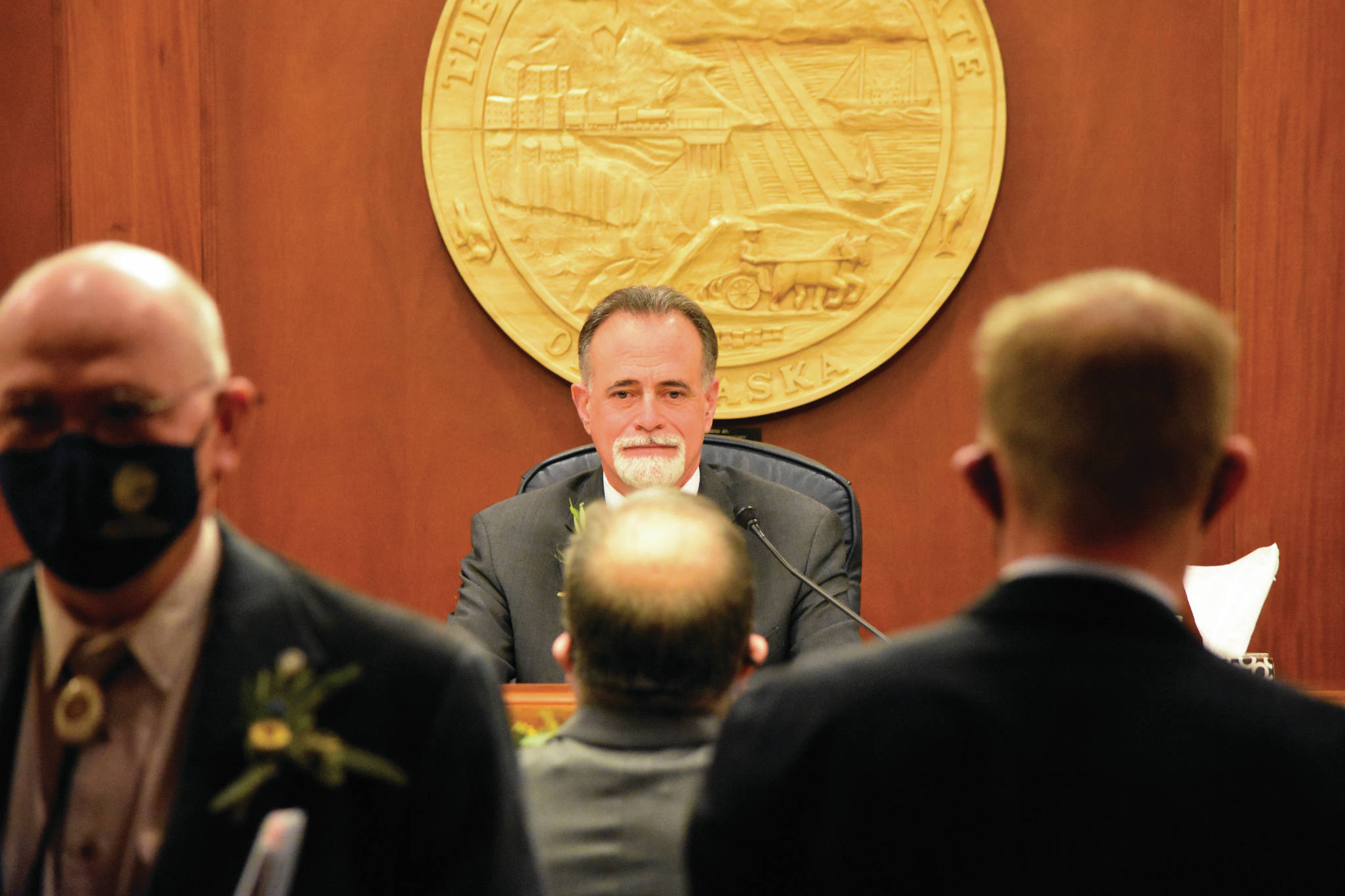By Becky Bohrer
THE ASSOCIATED PRESS
JUNEAU — The Alaska Senate organized a Republican majority as the new legislative session got underway Tuesday, with Soldotna Republican Peter Micciche elected Senate president.
“You might note that the Senate is ready for business on Day 1,” Micciche said, telling reporters plans for the majority were made official Tuesday, ahead of the session’s start. He said the majority would include all 13 Senate Republicans and be willing to add members who agree with the caucus’ objectives.
The 20-member Senate also has seven Democrats, and it has not been unusual in past years for at least one Democrat from rural Alaska to join a Republican-led majority.
Micciche’s election as Senate president was held by voice vote, with no one dissenting. Micciche has served in the Senate since 2013.
Senate Democratic Leader Tom Begich, in a statement, said Democrats had “many conversations with Republican members of the Senate, but unfortunately, some of those members will not put party politics aside in favour of working with Democrats in a bipartisan fashion for an Alaska agenda that seeks to help all of us recover from the difficulties of this past year.”
In an interview, he declined to say which members he was referring to. Begich said the nation has been “riven by partisan politics” and said the Alaska Senate could have set an example by forming a bipartisan majority coalition.
Begich had a working relationship with former Republican Senate President Cathy Giessel that he said turned into a “very valuable friendship” built on finding common ground on issues. He said he’s hopeful the new majority will see value in working with Democrats. Giessel was not reelected to the Senate.
The majority announced Tuesday that Palmer Republican Sen. Shelley Hughes would be majority leader and Sens. Bert Stedman of Sitka and Click Bishop of Fairbanks would co-chair the powerful Senate Finance Committee. Full details on committee assignments are pending.
The House, which in recent years has had a bipartisan majority, hasn’t organized for the new Legislature. While 21 of the House’s 40 members are Republicans, one of them, Rep. Louise Stutes, who has been part of the coalition, last month said she’d stick with her coalition colleagues.
It took until February in 2019 for the House to organize a majority.
Big and familiar issues await lawmakers, including decisions on the budget and the future of the annual checks that have been paid to residents from the earnings of the state’s oil-wealth nest egg.
The first day of a new Legislature is typically one of pomp, but Tuesday’s start was muted amid COVID-19 concerns. The Capitol is closed to the public, so there was no choir brought in to perform the state song. And lawmakers, who usually stand shoulder to shoulder as they are sworn in, were spaced on the House and Senate floors to encourage distancing. Dividers surround legislators’ desks on their respective floors.
Masking and COVID-19 testing rules were established ahead of session. But they could change with the new Legislature.

